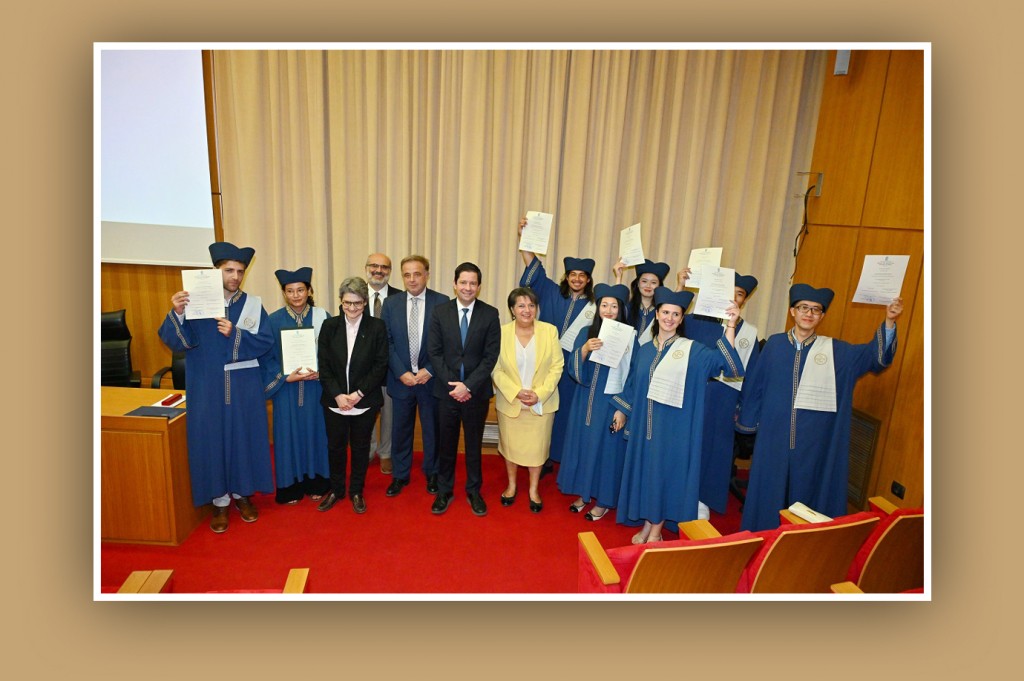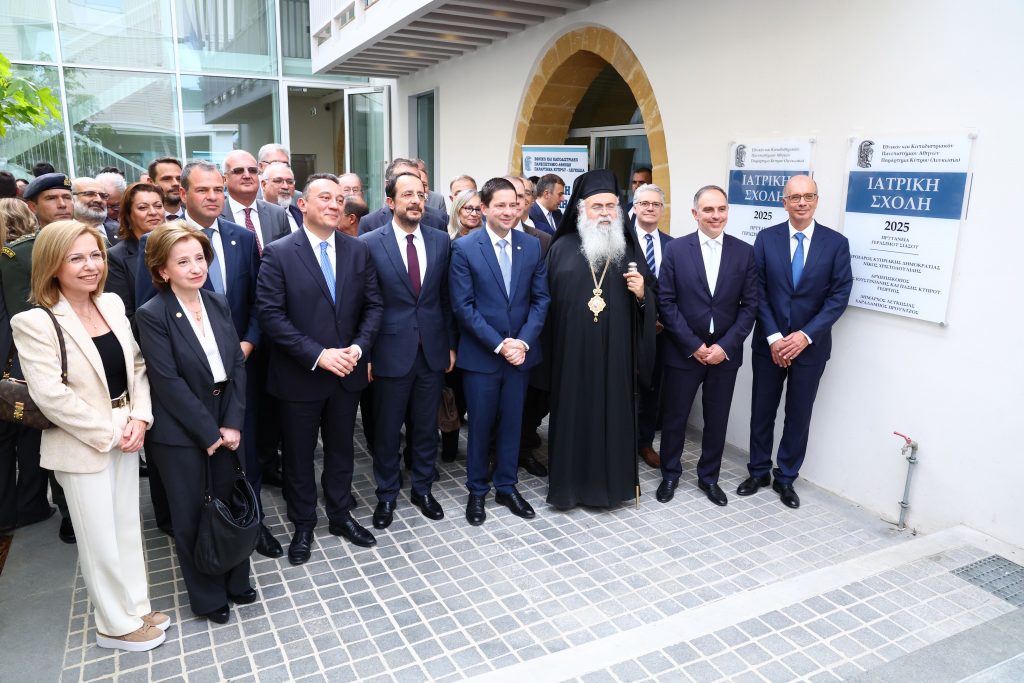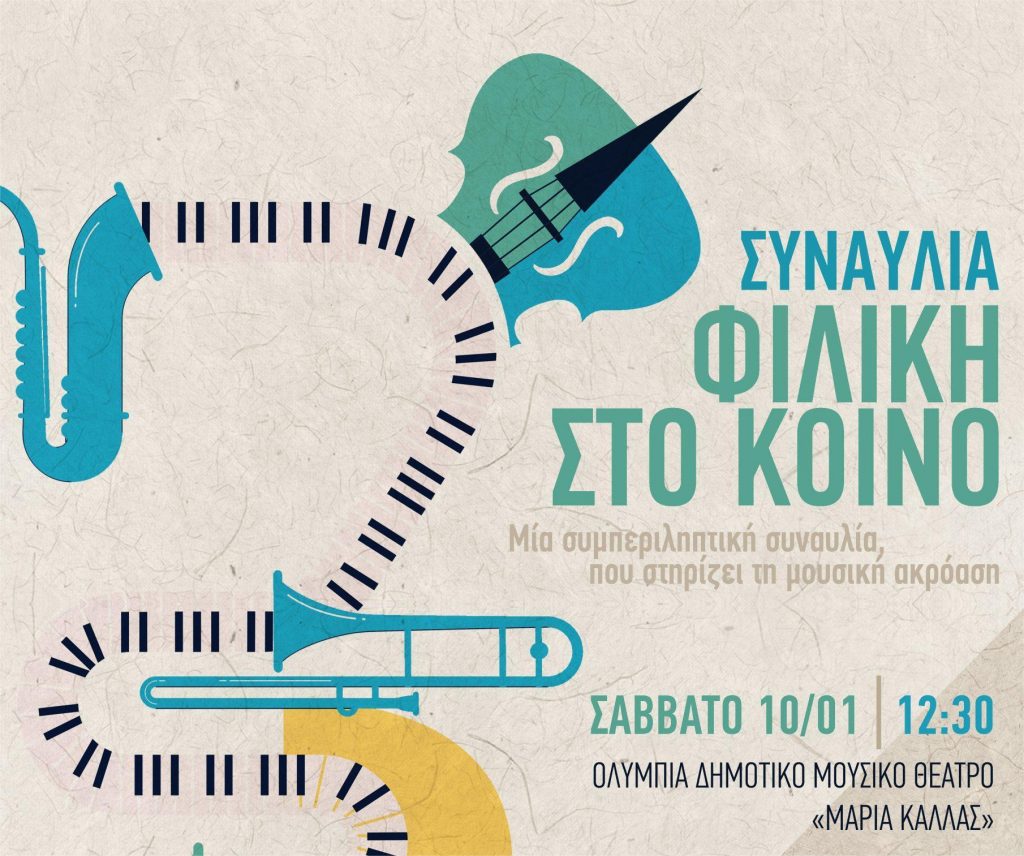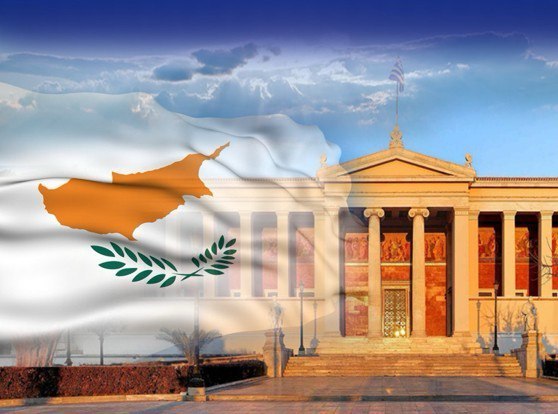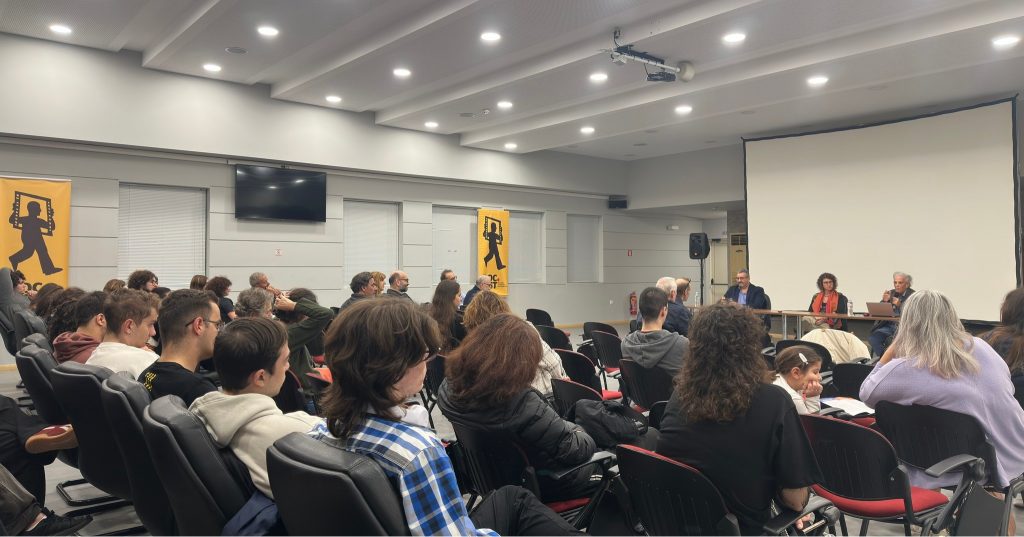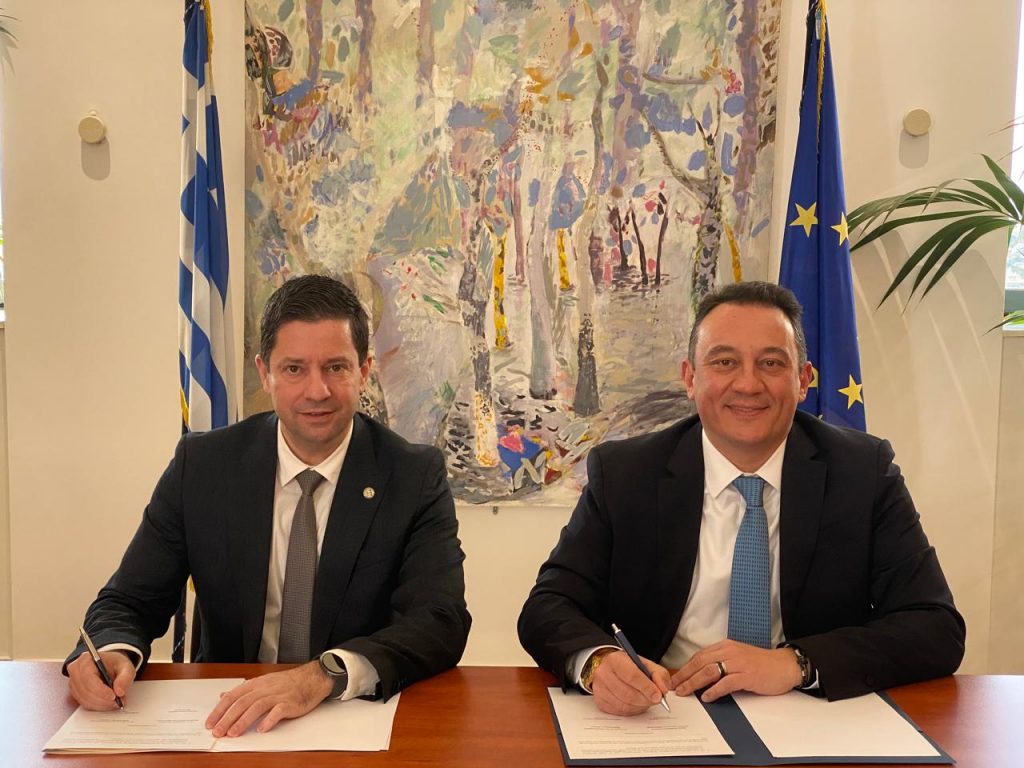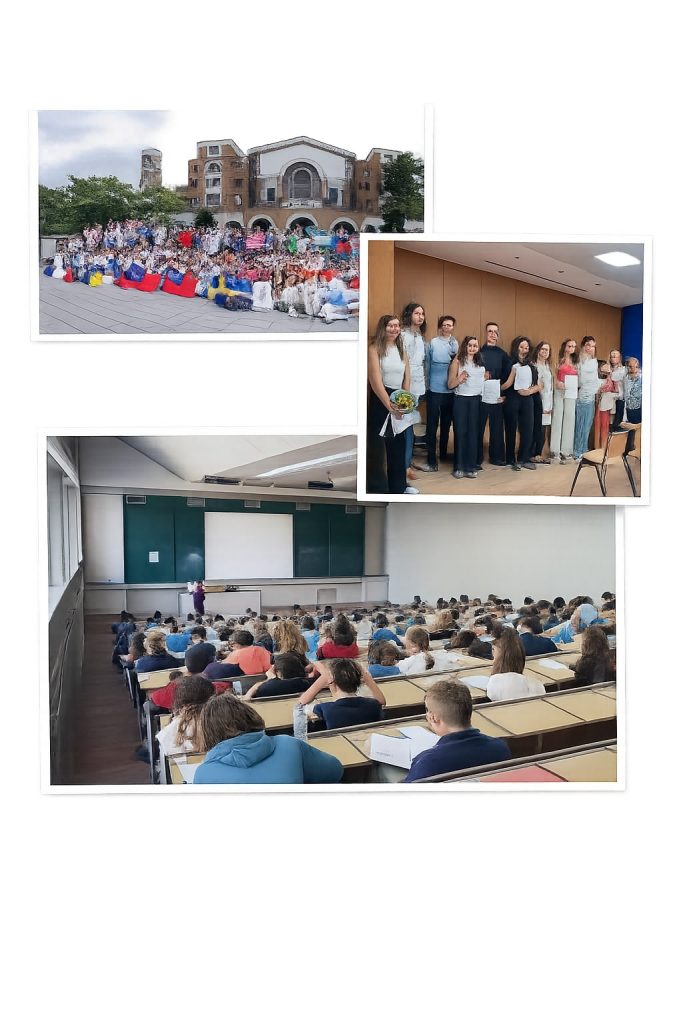Η πρώτη τελετή αποφοίτησης του Προγράμματος “BA in the Archaeology, History and Literature of Ancient Greece (BAAG)”, του πρώτου προπτυχιακού προγράμματος σπουδών πλήρους φοίτησης στη χώρα μας, που διδάσκεται εξ ολοκλήρου στην αγγλική γλώσσα έλαβε χώρα την Παρασκευή 21 Ιουνίου 2024 στο κεντρικό κτίριο του Ε.Κ.Π.Α.
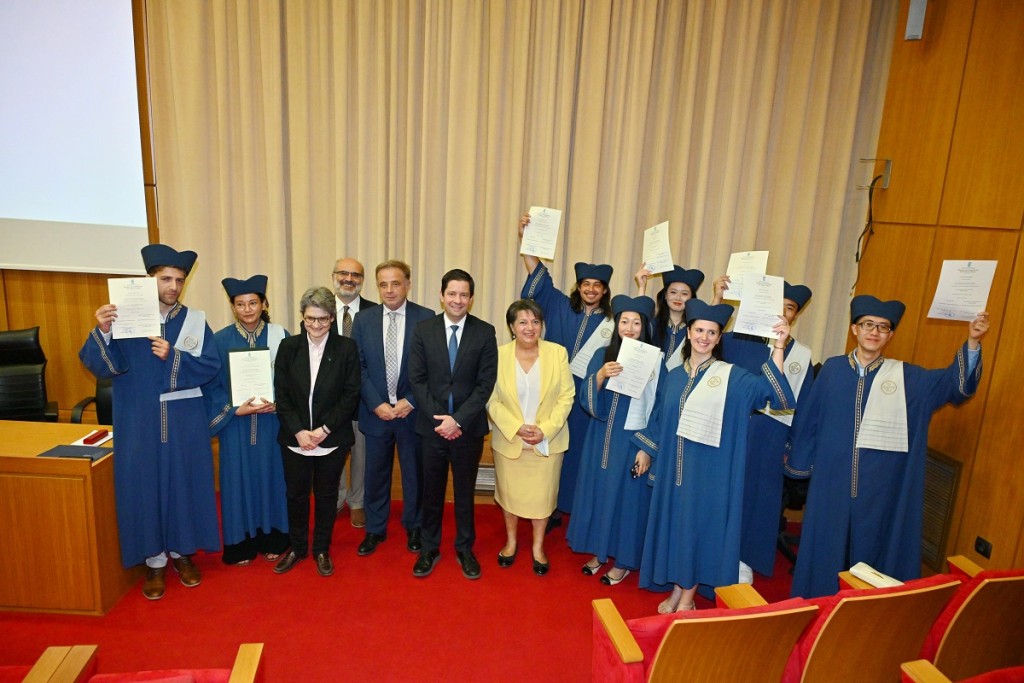
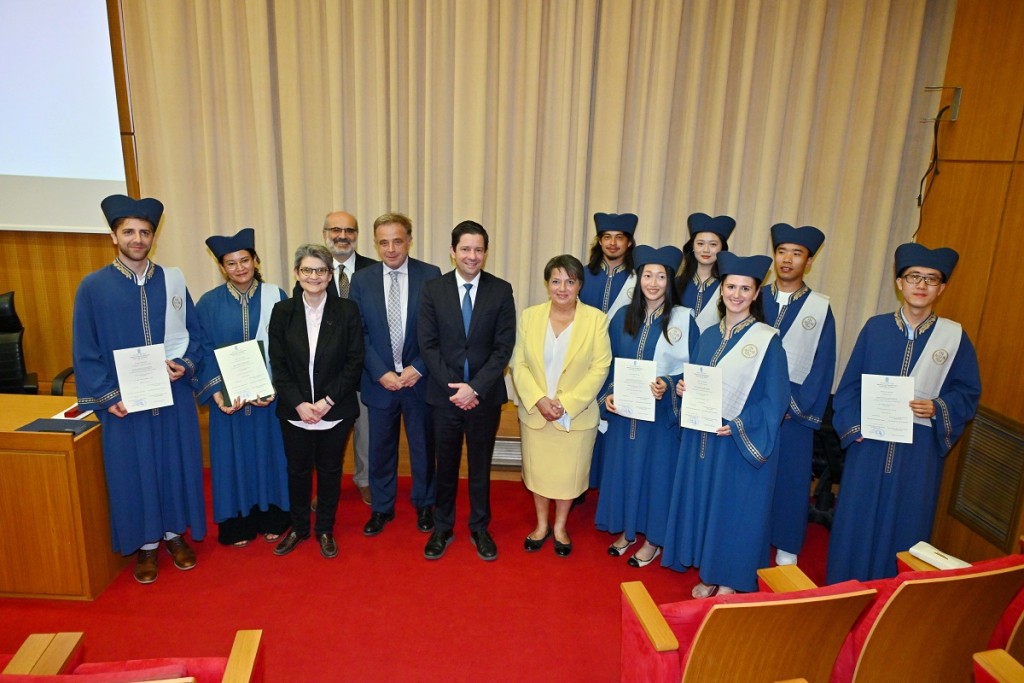
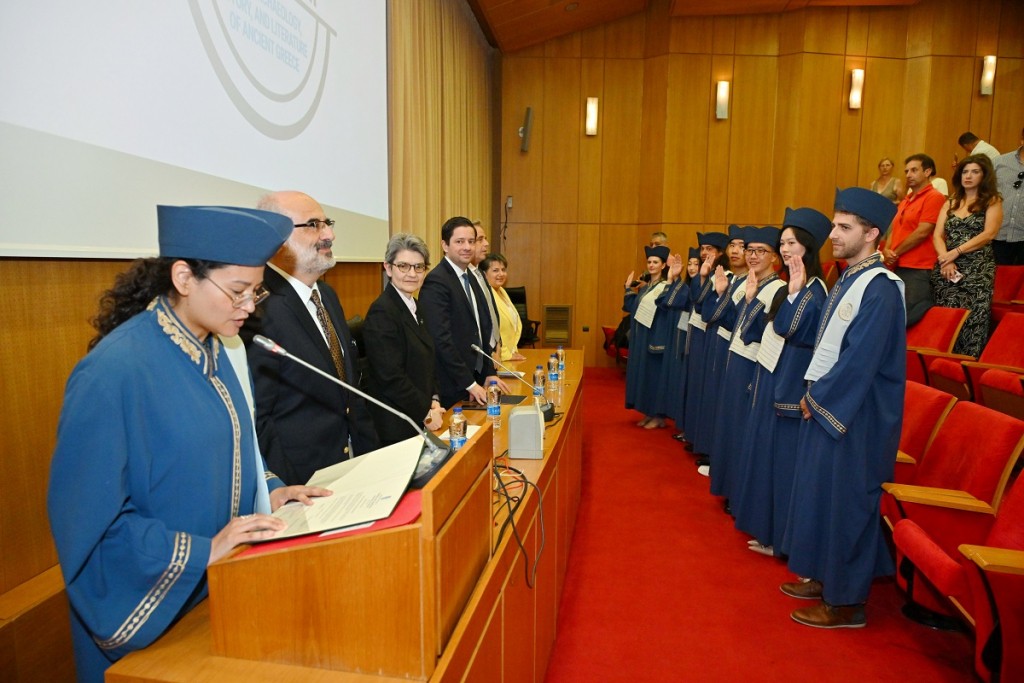
Πρόκειται για την τάξη του 2024, τις φοιτήτριες και τους φοιτητές που ήρθαν στην Ελλάδα από πολλά μέρη του κόσμου το 2020, και ολοκλήρωσαν πλέον ένα ευρύ πρόγραμμα στις κλασικές σπουδές, με άξονες την αρχαιολογία, την ιστορία, και τη φιλολογία της Αρχαίας Ελλάδας. Πέρα από τα οκτώ εξάμηνα πλήρους φοίτησης που ολοκλήρωσαν στη Φιλοσοφική Σχολή της Αθήνας, οι φοιτήτριες και οι φοιτητές της τάξης του 2024 συμμετείχαν σε εκπαιδευτικές εκδρομές και επιτόπια μαθήματα σε αρχαιολογικούς χώρους και μουσεία όλης της χώρας, καθώς και στην εκπαιδευτική αρχαιολογική ανασκαφή του Ε.Κ.Π.Α. στο Πλάσι Μαραθώνος.
Σημειώνεται ότι το BAAG είναι το πρώτο ξενόγλωσσο πρόγραμμα προπτυχιακών σπουδών πλήρους φοίτησης που ιδρύθηκε στην Ελλάδα το 2019, και λειτουργεί από το ακαδημαϊκό έτος 2020-21, μετά από πολύχρονες συντονισμένες προσπάθειες της Φιλοσοφικής Σχολής και των Πρυτανικών Αρχών του Ε.Κ.Π.Α.
Την τελετή χαιρέτισαν ο Πρύτανης του Ε.Κ.Π.Α. Καθηγητής κ. Γεράσιμος Σιάσος, η Αντιπρύτανις Ακαδημαϊκών, Διεθνών Σχέσεων και Εξωστρέφειας Καθηγήτρια κ. Σοφία Παπαϊωάννου, ο Κοσμήτορας της Φιλοσοφικής Σχολής Καθηγητής κ. Δημήτριος Δρόσος, ο Διευθυντής του Προγράμματος Καθηγητής κ. Δημήτριος Πλάντζος και η τέως ακαδημαϊκή Διευθύντρια του Προγράμματος Ομότιμη Καθηγήτρια κ. Ελένη Καραμολέγκου. Η τελετή πραγματοποιήθηκε παρουσία και του μέλους του Συμβουλίου Διοίκησης του Ε.Κ.Π.Α. Καθηγητή κ. Αχιλλέα Χαλδαιάκη.
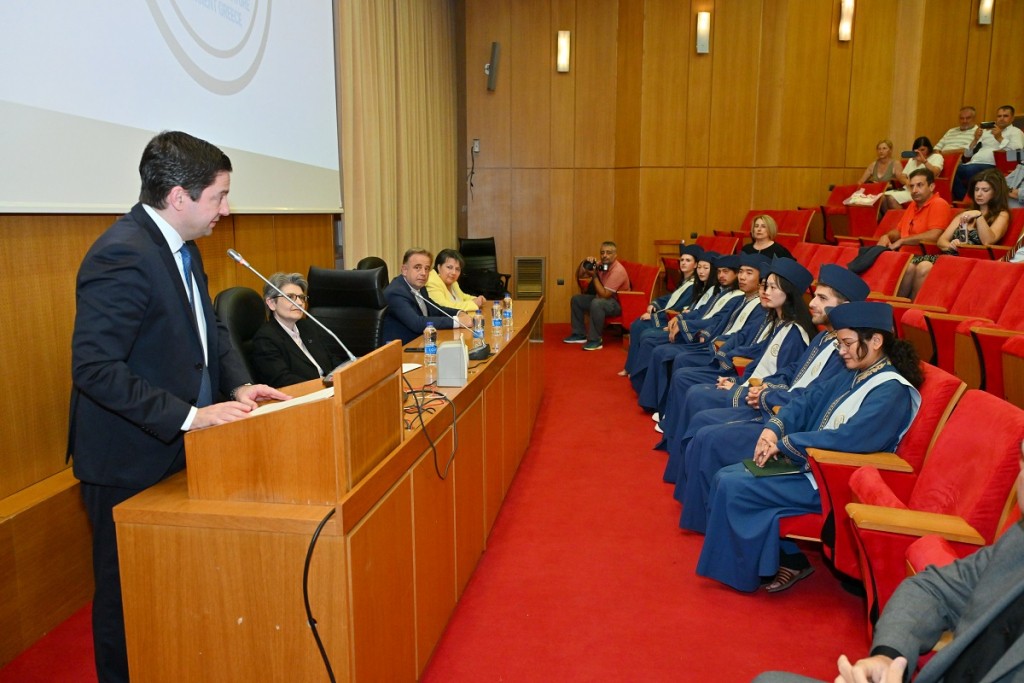
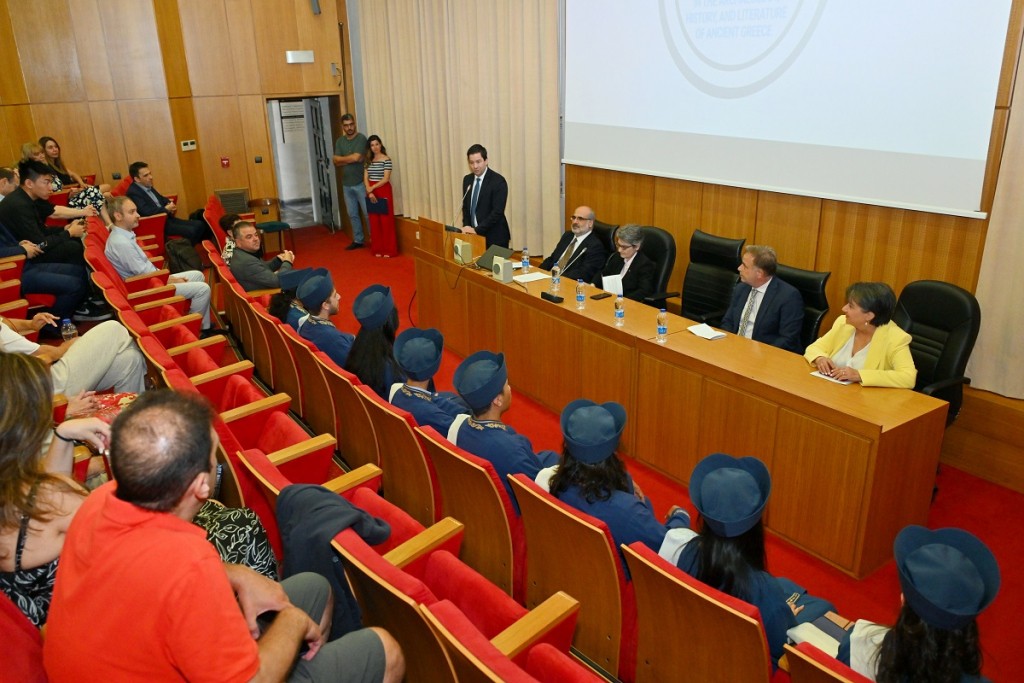
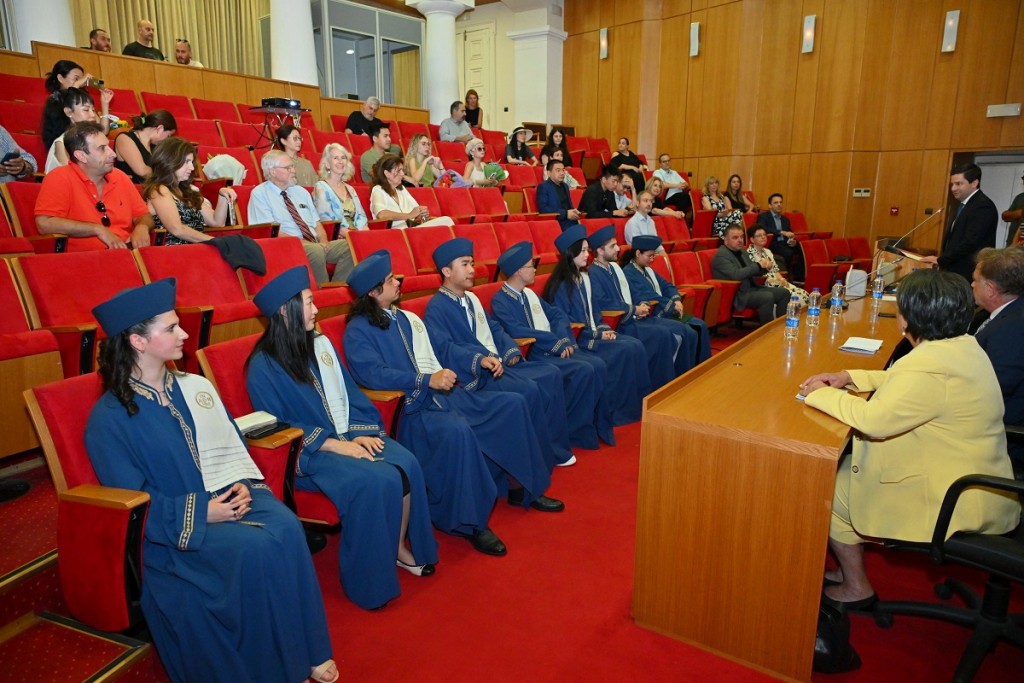
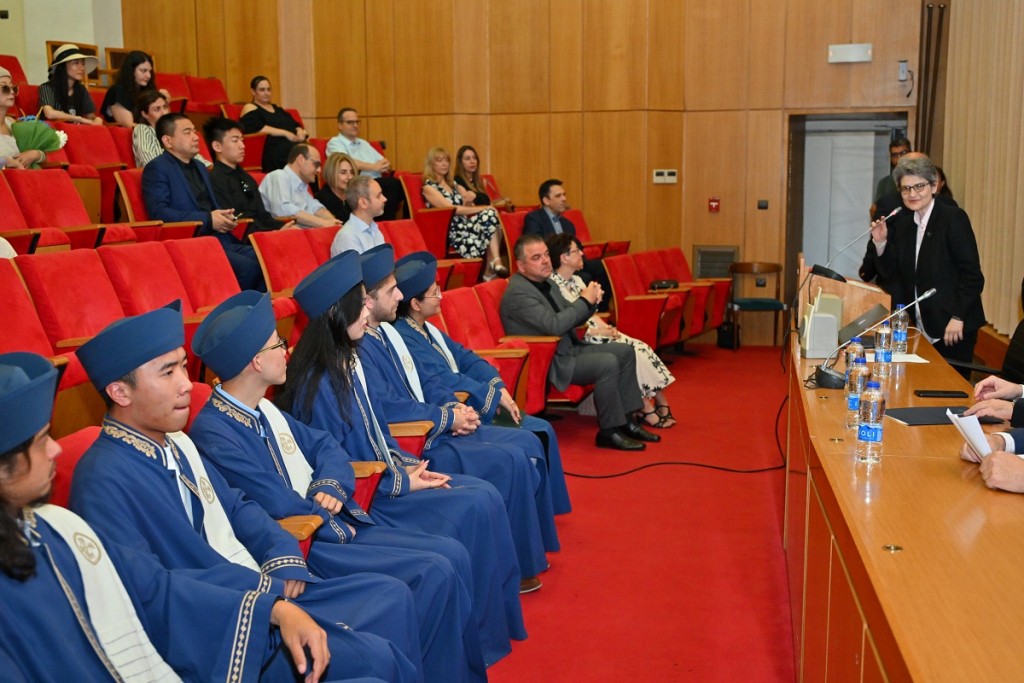
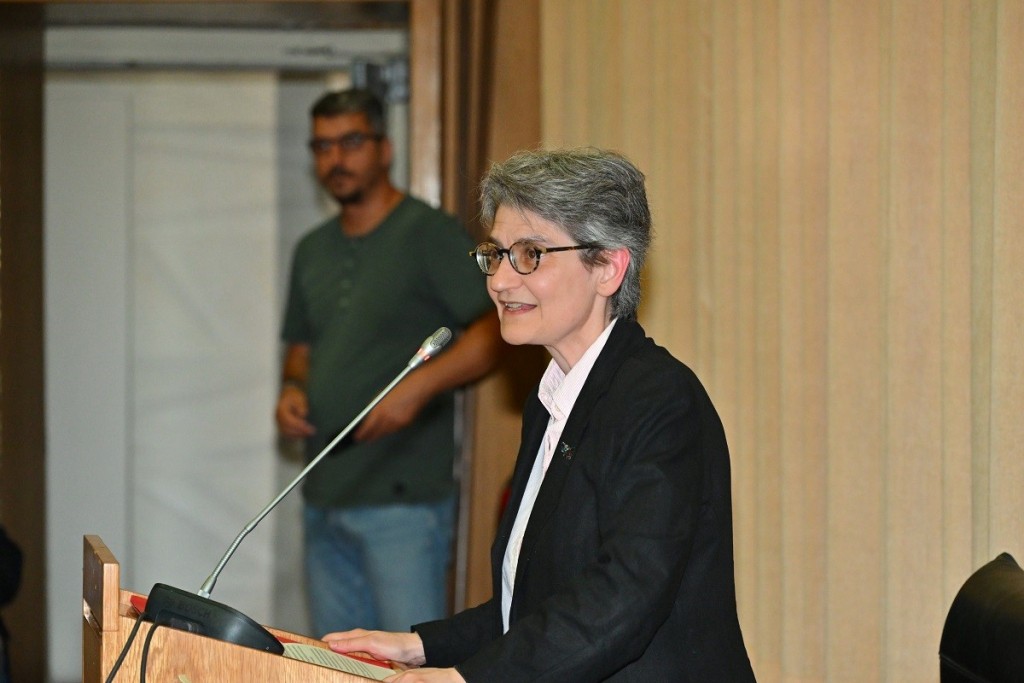
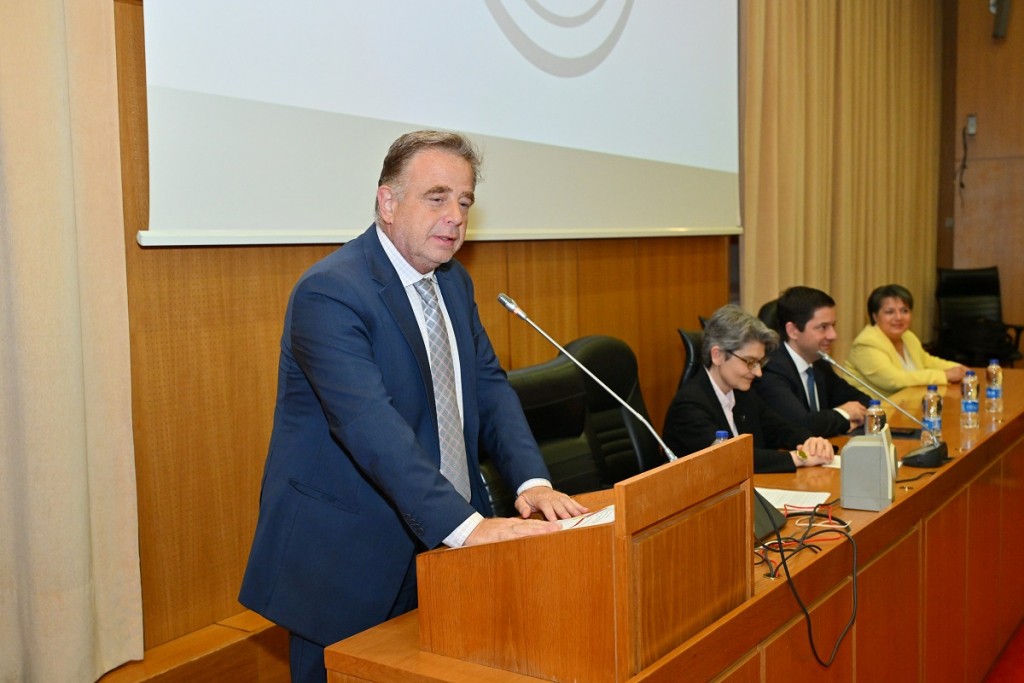
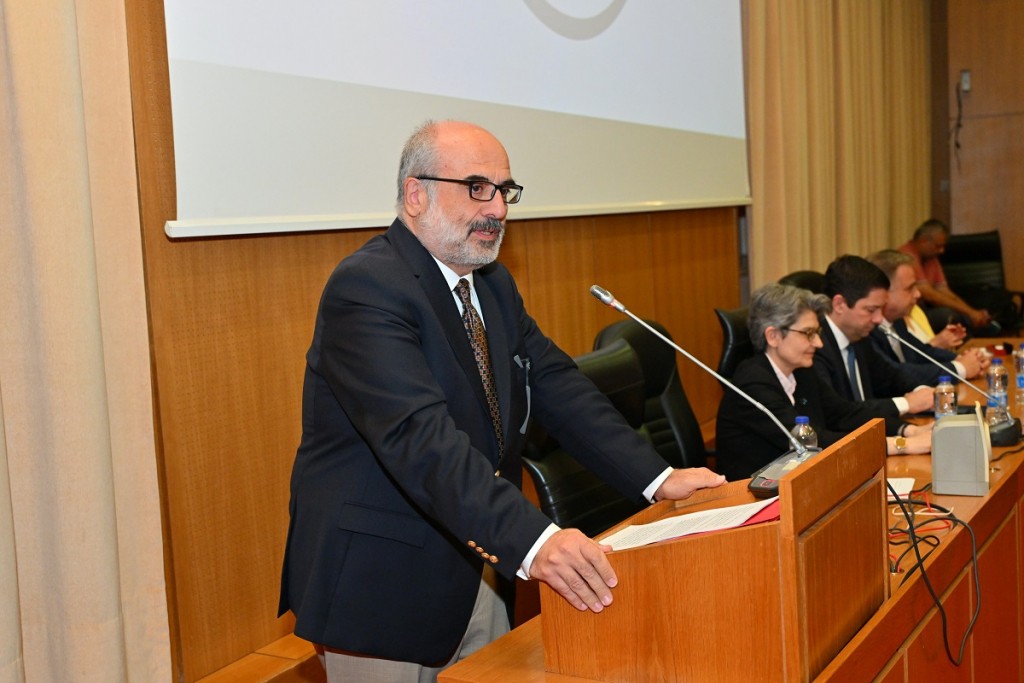
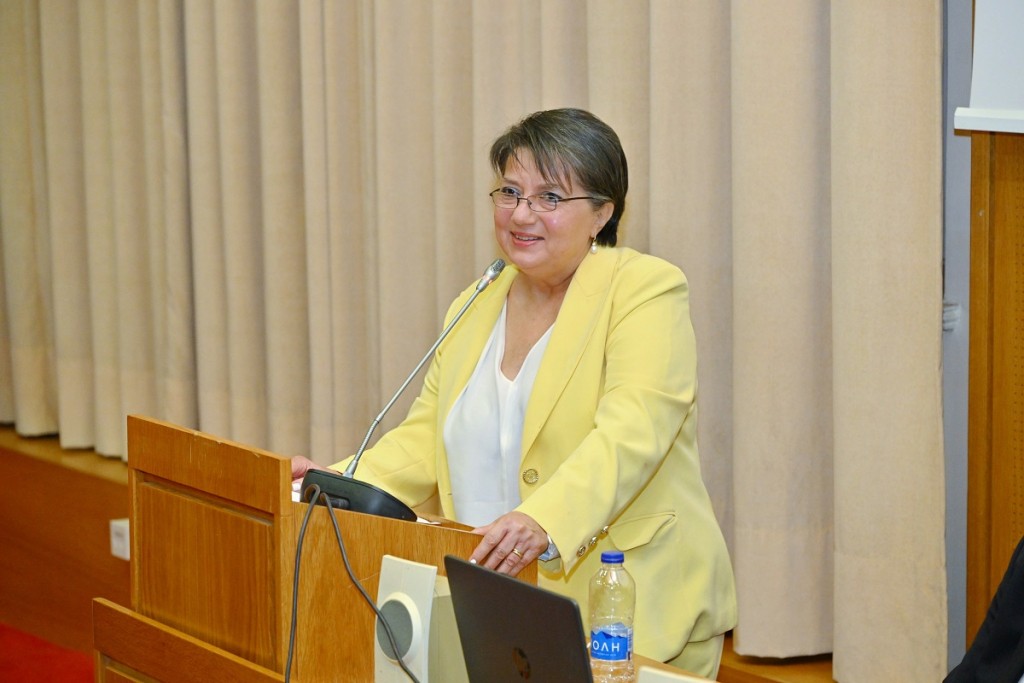
Ο Πρύτανης του Ε.Κ.Π.Α. Καθηγητής κ. Γεράσιμος Σιάσος ανέφερε κατά τον χαιρετισμό του: “It is my great pleasure to stand before you today, as we celebrate the accomplishments of our graduating class. This is a joyous occasion that marks the culmination of years of hard work and dedication. Today, we gather to honor and recognize the achievements of our students as they prepare to embark on the next chapter of their lives.
Graduates, as you reflect on your time here at our university, remember the challenges you have overcome, the friendships you have made, and the knowledge you have gained. Each of you has worked tirelessly to reach this moment, and I am incredibly proud of all that you have accomplished. You have demonstrated the ability to excel academically, to push yourselves beyond your limits, and to embrace new ideas and perspectives.
As you move forward into the world beyond our campus, I encourage you to continue to pursue excellence in all that you do. Use the skills and knowledge you have acquired here to make a positive impact on the world around you.
I also want to take this opportunity to express my deepest gratitude to the faculty members, staff, and administrators who have supported you on your journey, and especially to the Director of the Program- Professor Dimitris Plantzos, and the former Dean of the School of Philosophy, Professor Eleni Karamolegou, for their significant contribution. Their dedication and commitment to your success have been instrumental in helping you reach this important milestone.
Congratulations to you all !”
Η Αντιπρύτανις Ακαδημαϊκών, Διεθνών Σχέσεων και Εξωστρέφειας Καθηγήτρια κ. Σοφία Παπαϊωάννου στο λόγο της ανέφερε: “Dear Rector, dear Dean of the School of Philosophy, dear former Dean, dear Director of the BAAG program, dear first let me say that it is a pleasure to be able to address the graduating class of the first Anglophone BA program in our University. This is indeed a great moment, for the School of Philosophy and for the academic community of the National and Kapodistrian University of Athens. When, six years ago, we launched this endeavor to put together a BA program in Classics, a program that would invite students from all over the world to pursue studies in the Archaeology, History and Literature of Ancient Greece, a program that would realize the vision of Professor Emerita Eleni Karamalengou, we could not imagine the great challenges we would face – we had to draft a whole new chapter in the National Legal Frame of Higher Education, since ours was going to be the first ever BA program in a Greek University to be taught in a language other than Greek; we had to learn how to disseminate the information about this program as broadly as possible; and, not least, we had to face the unprecedented circumstances of the Covid Pandemic which posed huge challenges to traveling and student movement. Nonetheless, we did it! We are here today, to celebrate the graduate of class of 2024, the first graduates of the BAAG program, and I cannot find the right words to tell you how thrilled and how proud I am. I would like to congratulate our first graduates as well as their families for trusting us with their education to us.
What you have been given during your years of classical education at this institution is a gift, which I believe you should treasure all your life. In addition to specialized, high quality education, we are fully prepared to start your journey to the path of life, an untrodden path that awaits for your distinct, personal initiative. Let me tell you a story at this point:
Once Albert Einstein was traveling on a train from Princeton. When the conductor came down the aisle punching tickets the great physicist reached into his vest pocket, but could not find his ticket. So he reached into the pockets of his pants, but still he couldn’t find the ticket.
The conductor said, “Dr. Einstein, it’s ok. I know who you are.”
As if not hearing these words, Einstein continued searching for the missing ticket. As he opened his briefcase to look inside, the conductor said again, “Dr. Einstein, we all know who you are. I’m sure you bought a ticket. Please don’t worry about it.”
The conductor continued down the aisle, but behind him he could see the scientist still looking around for the missing ticket.
Rushing back to him, the conductor said, “Please, please Dr. Einstein, do not worry. I’m sure you bought a ticket.”
Einstein stood up, looked the conductor in the eye and replied, “Young man, I, too, know who I am. What I do not know is where I am going.”
I don’t know if that story actually happened, but I would like to share with you this story because it gets to the heart of an important truth. Sometimes it isn’t good enough to know where you are, or even who you are. You also have to know where you’re going.
You have been at a school that values something called “classical education.” Widespread confusion exists about what this term even means. It is easy to lose sight of the core values that inform this type of educational approach.
Whatever else we might say, classical education—both in its ancient and modern application—has been understood to be about the cultivation of virtue through the liberal arts. In the historic classical tradition, virtue was understood to be about having correct dispositions, and cultivating mental and physical habits that foster rightly-ordered attitudes at the deepest core of our being. Through rightly-ordered habits, dispositions, and attitudes, the virtues or excellences appropriate to the human being can be realized.
One of the goals of education is to cultivate proper habits that will incline us to respond to situations with the right emotional responses. Without emotions rooted in a proper perception of reality, it is impossible to achieve eudaimonia, a Greek word that is often translated “happiness” but more properly conveys the idea of human flourishing.
Cultivating this proper perception of reality is the mission of classical education—liberal education in general, and it is hard work. It’s easy to misunderstand the nature of this type of reward, since often the rewards we receive from hard work have no organic connection to the labor. But sometimes we do experience rewards that are organically connected to the work that earned them. For example, the enjoyment of reading Homer in the original language is organically related to the work of studying Greek and learning to appreciate good literature. One who has not worked to appreciate good literature may puzzle why another would prefer Homer over comics.
Reality most of the times is full of difficulties and hard work. That’s not the sort of thing you want to hear at a graduation ceremony, but it’s true and so I’ll say it again: if you have been well-educated, then you have been educated for a life of hard work. Hard work does not always lead to success according to worldly standards but it always offer the opportunity to realize a special type of beauty and satisfaction that can only be known in labor. I fully believe that our program, our University has prepared you in the best way possible to begin the journey of your life. We wish you all the best, we will very much like to keep in touch with you, and I am sure you will make us, the community of NKUA, proud in the years to come.”
Έπειτα, χαιρετισμό απηύθυνε ο Κοσμήτορας της Φιλοσοφικής Σχολής Καθηγητής κ. Δημήτριος Δρόσος, ο οποίος σημείωσε: “Since 2020, the School of Philosophy of the National and Kapodistrian University of Athens has designed a BA Program -focused on Greek Antiquity- that currently boasts an accomplished and passionate faculty and staff, and more than 80 international students. BA Program in the Archeology, History and Literature of Ancient Greece is the first undergraduate degree program that is taught fully in English at a Greek University which is addressed to exclusively international prospective students. Thus, Baag symbolizes the beginning of a new era for the extroversion and internationalization of Greek Higher Education. Therefore, I am very proud that this program is offered by our School, thanks to the vision and perspicacity of a precious colleague, Professor Emerita Ms. Eleni Karamalegou, First Academic Director of BA Program and former Dean of the School of Philosophy!
Dear Students, I am delighted and moved to be here today celebrating your achievements, as the first BA Program graduates and the next generation of brights, talented, and visionary colleagues.
I have loved the opportunity, as Dean of The School of Philosophy, to experience your persistence and creativity.
I know that your teachers and parents are very proud of you. Proud of your hard work, for overcoming daily tribulations, pushing through all of your activities–not just to make the grade, but to absorb, to learn, and to succeed. And you made it!
In closing, whatever you do next, I’d advise you to hold on to your special status as students of the University of Athens. You go out into the world having lived in one of the most beautiful places. But you also have lived in a city that gave us that precious gift of freedom and civilization. So go forward with the pride of Athenians, with all that you’ve learned from your teachers and draw from these experiences as you move forward to a bright and promising future.
I also want to thank the current director of the program, Prof. Plantzos for his excellent word, as well as the former director prof. Eleni Karamalegou, and of course the Authorities and the Rector of The NKUA.
Congratulations TO ALL!”
Ακολούθως, ο Διευθυντής του Προγράμματος Καθηγητής κ. Δημήτριος Πλάντζος τόνισε: “It is with immense pride and joy that I stand before you today, addressing a group of remarkable individuals who have dedicated their academic journey to the study of archaeology, history, and literature of ancient Greece. To the Class of 2024, congratulations! You have reached a significant milestone, and it is both a privilege and a pleasure to celebrate this momentous occasion with you. Although we met in dire circumstances four years ago, we got to admire for your resilience, your commitment, and your love for things Greek.
The BA in the Archaeology, History, and Literature of Ancient Greece was created only a few years ago, as a bridge of academic collaboration and friendly exchange of knowledge between our University – the largest state institution of higher learning in Greece, and one of the largest universities in Europe – and the world at large; rather than waiting for Athens eventually to be discovered, we came to you, wherever you may have been across the globe, wishing to share what we know best: the archaeology, the history, and the literature of Ancient Greece. And, even more, we decided to stage this formidable endeavour in the scenery of culture and learning that the city of Athens has always been. It is my great pleasure, therefore, to witness this, the very first graduation of a Program we planned, and dreamt of, and worked for over so many months and years and against so many obstacles. Hence it is my great pleasure to note the presence here today of Professor Achileas Haldaiakis, former Dean of the School of Philosophy and now member of the University Board, and of course Professor Emerita Eleni Karamalengou, also a former Dean of our School but most significantly our Program’s first ever Director who worked tirelessly for this achievement.
So here we are, dear Class of 2024. Your time in Athens, a city steeped in the legacy of the ancients, has been more than just an academic experience; it has been a profound immersion into the very heart of classical civilization. Your Greek experiences have not only enriched your understanding of ancient Greece but have also shaped you in ways that will resonate throughout your lives.
The study of ancient Greece is not merely an academic endeavour; it is an exploration of the very foundations of global civilization. The Greeks and the Romans left us ideas about citizenship, governance, ethics, and aesthetics that continue to influence modern thought and society. Through your classes in archaeology, you have learnt that every pottery sherd, every ancient structure, and every inscription you may come across tells a story of human endeavour, creativity, and resilience.
In history, you have traced the evolution of a society that has left an indelible mark on the world. You have studied the rise and fall of empires, the triumphs and tragedies of wars, and the enduring legacies of cultural achievements. You have seen how history is not just a series of events, but a complex tapestry of human experiences and aspirations.
In literature, you have delved into the minds of some of the greatest thinkers and writers of all time. The epics of Homer, the tragedies of Sophocles, the philosophies of Plato and Aristotle – these works have challenged you to think deeply about the human condition, to question the nature of existence, and to seek wisdom and truth.
From your studies, you have garnered lessons that are as relevant today as they were in ancient times. The Greeks were masters of asking the big questions and seeking meaningful answers. They pondered over concepts of justice, virtue, and the good life. They explored the nature of reality, the power of the mind, and the mysteries of the cosmos. These inquiries have provided us with a rich intellectual heritage. One of the most enduring lessons from ancient Greece is the value of critical thinking and dialogue. As you move forward, remember the importance of questioning assumptions, engaging in thoughtful dialogue, and seeking out diverse perspectives. In a world where information is abundant, but wisdom is scarce, these skills are invaluable.
Another profound lesson is the power of storytelling. The myths, epics, and dramas of ancient Greece and Rome are not just entertaining tales; they are vehicles for conveying deep truths about human nature and society. They teach us about heroism, tragedy, love, and fate. They remind us of our shared humanity and the timeless struggles and triumphs that define the human experience. As graduates of classics, you carry with you the ability to understand and tell stories that can inspire, educate, and transform.
As you leave this historic city and the hallowed halls of your university, you carry with you a wealth of knowledge and a unique perspective shaped by your studies. The world you are entering is vastly different from the one the ancient Greeks knew, yet many of the challenges remain the same. Issues of governance, justice, human rights, and cultural identity are as pressing today as they were in the days of Athens and Sparta, Rome and Carthage. Your education has equipped you with the tools to navigate and contribute to this complex world. Whether you choose to continue in academia, work in museums, engage in public history, or pursue entirely different paths, the skills and insights you have gained will serve you well. You have learned to think critically, to appreciate the nuances of human behaviour, and to communicate effectively. These are qualities that will distinguish you in any field.
Class of 2024: The future, like the past, is filled with uncertainties and possibilities. The ancient Greeks understood the concept of fate and the unpredictable nature of life. Yet, they also believed in the power of human agency and the potential for greatness. You, too, are on the brink of a new chapter filled with unknowns. Embrace this uncertainty with courage and optimism. Trust in your abilities, stay true to your values, and remain open to new opportunities and experiences.
Congratulations, and may your journey be filled with discovery, fulfilment, and success.
Thank you.”
Τέλος, η τέως ακαδημαϊκή Διευθύντρια του Προγράμματος Ομότιμη Καθηγήτρια κ. Ελένη Καραμολέγκου σημείωσε: “It is with great pleasure that I welcome today the first graduation of our students who completed their studies in the program after four years of continuous study.
In the year 2019 the Program was founded and began its educational operation in the academic year 2020-2021. It was the first English-taught undergraduate degree program in all Greek universities and we started it in the School of Philosophy with great enthusiasm and willingness to offer classical studies to students from all over the world in the country where Greek culture was created, Greek history was born and Greek letters flourished. Οur University, its authorities, the professors and the administration, as well as the state, supported our effort.
Dear Graduates, you immediately embraced and trusted this program, you traveled to our country to study and with a lot of persistence and diligence you finished your studies and you are already graduates after completing four years.
it is important to be inspired and create something new. But it is much more important to see the achievement of the goals that have been set from the beginning.
I feel that in five years as the head of program administration I got more than I gave. I wish to the current Director and the members of the Committee managing the program only success.
I wish you, dear Graduates, to continue, as everyone pleases, on the path you started, to spread in your turn to your countries and to the whole world what you learned and loved, and fulfill all your other dreams as well.”


